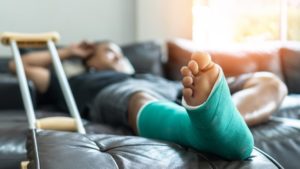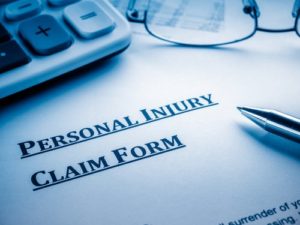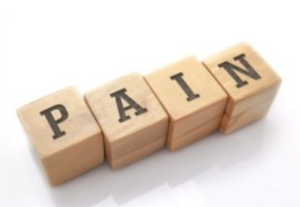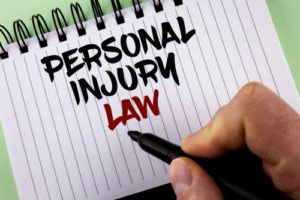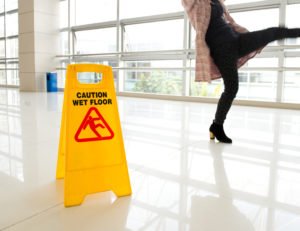
Slip and fall injuries can be serious, even life-threatening. Every year, about 3 million seniors are treated in hospitals for falls. About 20% of those falls can result in serious injuries, according to the Centers for Disease Control and Prevention (CDC).
If you have been injured in a slip and fall on another person’s property—whether that is a business or a person’s home—you may be able to seek compensation either by filing an insurance claim or a lawsuit.
In Ohio, winning these cases is not always easy. To win, victims must establish that the defendant was negligent, and to do that, they must overcome legal standards that seek to lay responsibility for the fall on them.
To learn more about your legal options after a slip and fall, a Cleveland slip and fall injury lawyer at Ben Crump Law, PLLC is here to help. Our attorneys never shy away from the tough cases, and you will never pay us anything until we recover an award on your behalf.
To schedule your free consultation, call our offices today at (855) 933-4005.
What to Do After a Slip and Fall
After a slip-and-fall injury, the most important step is to take care of yourself. Seek medical attention. Save records of your medical visits, as well as your expenses, including travel expenses. Record any time you have missed from work. Maintain a journal tracking your pain following your injury. Take photos of any personal property damaged in the fall—for example, a broken wristwatch.
You should also immediately report the accident to the property owner or manager. However, you do not have to provide a statement to the property owner’s insurance company without first consulting a Cleveland slip and fall injury lawyer. They can take over all communications for you.
For a free legal consultation with a slip and fall injury lawyer serving Cleveland, call (855) 933-4005
Negligence
The key to recovering an award after a slip and fall injury—either from the property owner’s insurance company or in court—is to show that the other party was negligent. In a legal sense, negligence simply means that the other party’s failure to live up to their responsibility caused your injury. There are three elements that go into proving a negligence claim:
- Duty of care: The defendant had a responsibility to exercise reasonable care in a situation that could cause harm.
- Breach of duty: The defendant failed in that responsibility.
- Cause of harm: The defendant’s failure directly led to the victims’ injuries.
- Damages: The victim suffered a loss because of those injuries.
If you tripped over exposed cables in a retail shop and fractured your hip, this may seem like an open-and-shut case of negligence, but in Ohio, it is not always that straightforward.
Comparative Negligence
Ohio uses a “comparative negligence” standard. This means a person’s award amount will be reduced by their percentage of fault, according to the Ohio Department of Insurance. In other words, if you are determined to be 25% at fault for your slip and fall, your recovery will be reduced by 25%. If you are more than 50% to blame, you cannot recover anything.
In a slip and fall case, there are any number of bases on which a property owner could argue comparative negligence. Perhaps you were looking at your phone and did not see that the floor had just been mopped. Maybe you were wearing old flip-flops that had lost their traction. Or you might have overlooked signs warning that the floor had been mopped, or simply wandered into a part of the store that was supposed to be off-limits to customers.
Another potential hurdle is the Open and Obvious Doctrine, meaning if the hazard was readily apparent. If a property owner can show that a plaintiff’s injuries arose from a hazard that was “open and obvious,” the property owner cannot be held responsible for their injuries.
This doctrine might apply to an icy parking lot in winter: The danger of slipping is apparent, so the property owner should not be held responsible if someone does not take precautions.
Even with an obvious risk, however, property owners still must maintain their properties. In addition, the 9th Circuit Court of Appeals ruled in 2015 that a defendant cannot argue that the Open and Obvious Doctrine applies when the hazard stems from a violation of state law rather than a building code. Among other things, state law governs how landlords maintain their properties.
Damages
Ohio does not limit how much a person may recover for economic damage such as medical expenses, lost wages, and damaged property. With intangible damages such as mental anguish and pain and suffering, Ohio Revised Code §2315.18 caps the potential award at the greater of $250,000 or three times the amount of economic damages. That cap is waived in the case of some physical deformities or other severe injuries, and there are no limits on wrongful death cases, according to Ohio Revised Code §2125.
Ohio’s statute of limitations, Ohio Revised Code §2305.10, only permits you two years after the date of the accident to file a personal injury or property damage claim, and two years after a death to file a wrongful death claim.
Cleveland Slip and Fall Injury Lawyer Near Me (855) 933-4005
How We Can Help
At Ben Crump Law, PLLC, we know that slips and falls can have devastating consequences, and we believe no one should have to pay for an injury that was not their fault. Our Cleveland slip and fall injury lawyer can fight to safeguard your rights and recover compensation on your behalf. We work on a contingency basis, so you do not have to worry about paying us anything until we obtain an award for you.
To schedule your free consultation, call our offices today at (855) 933-4005.
Call or text (855) 933-4005 or complete a Free Case Evaluation form

